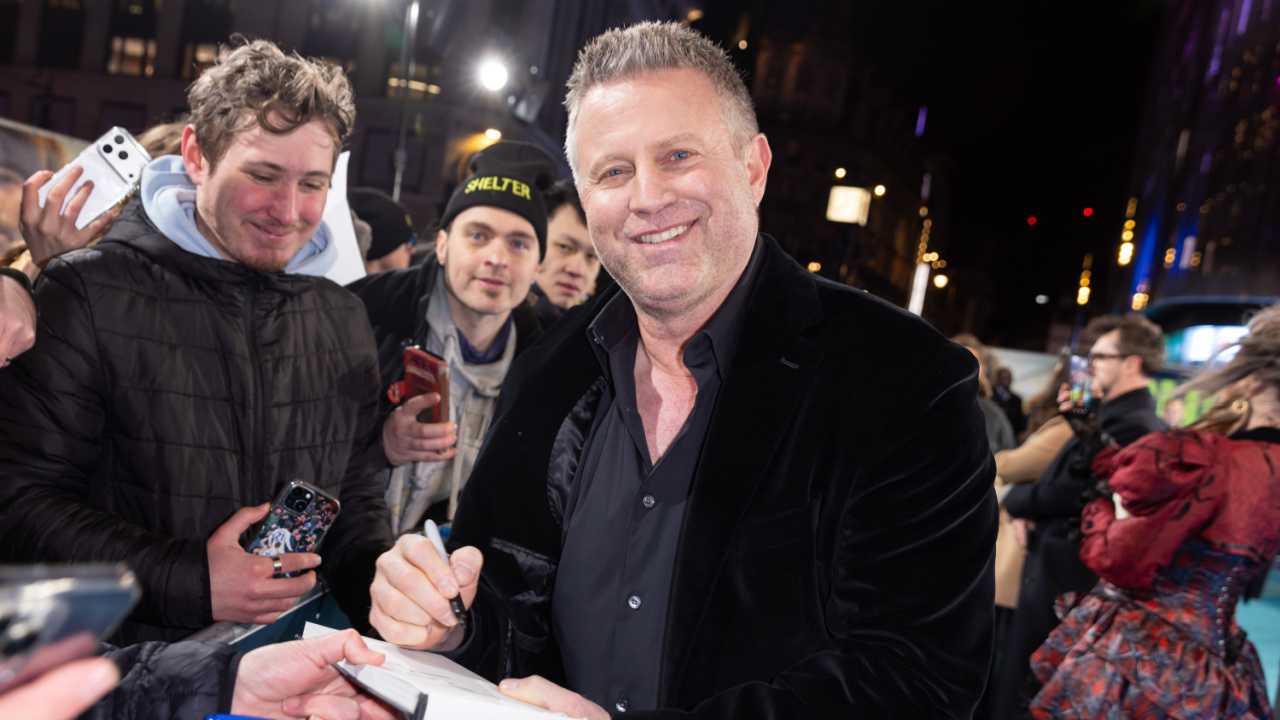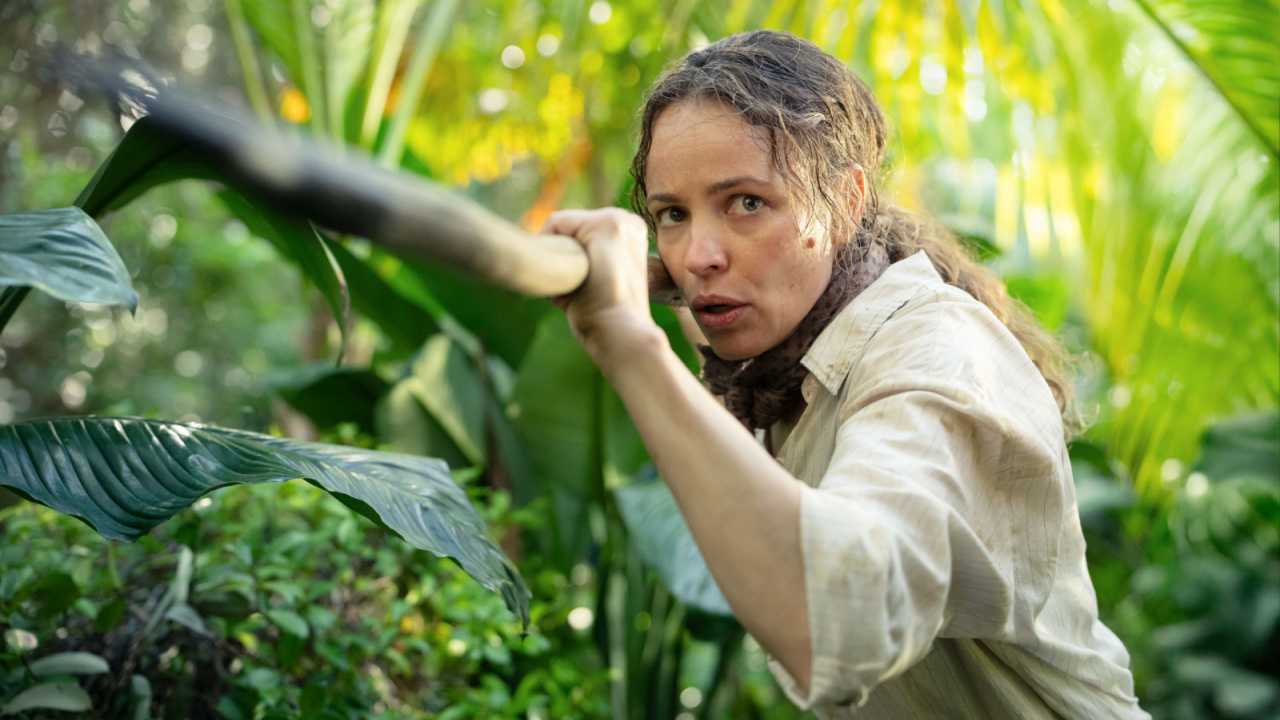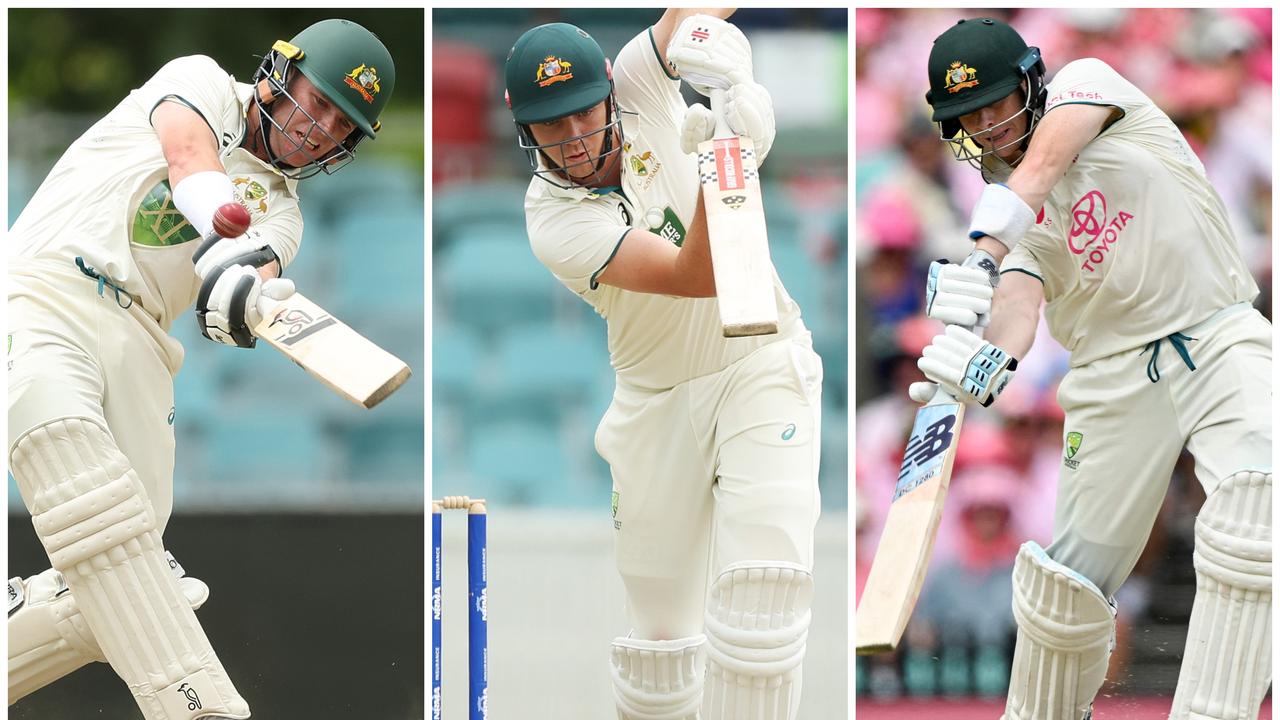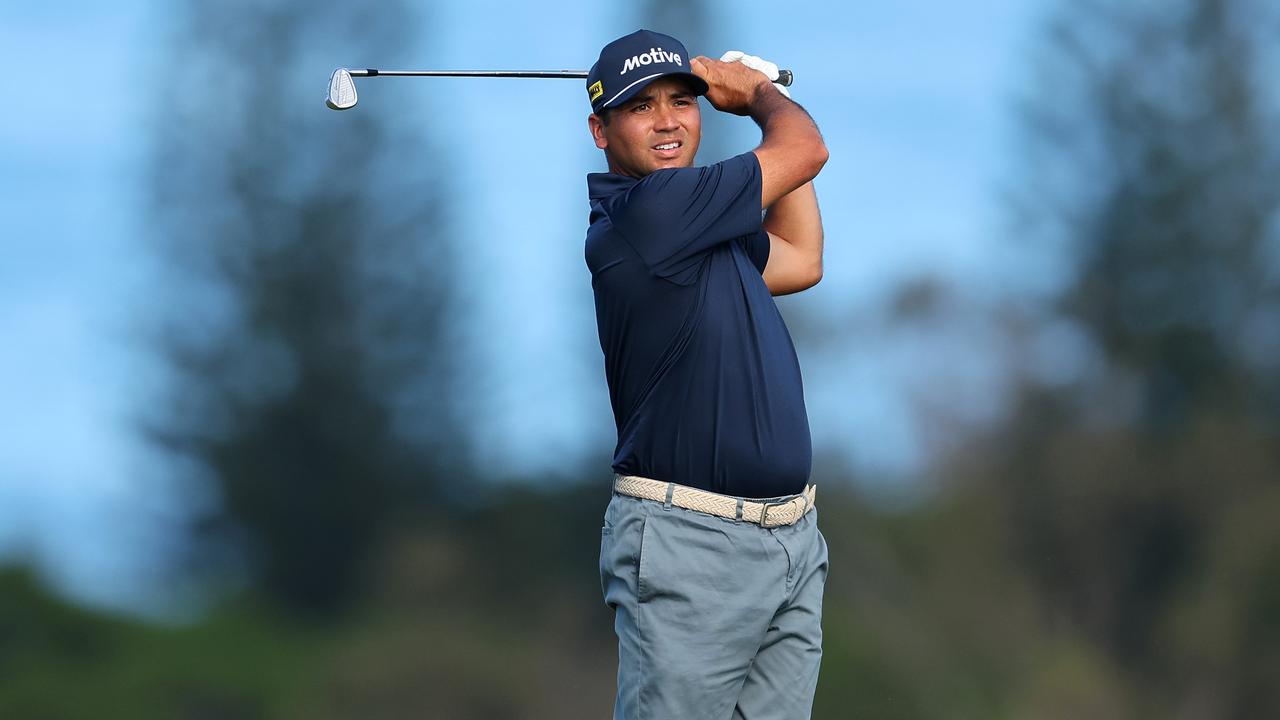D-Day has arrived for George Bailey and the national selection panel.
Debate surrounding David Warner’s successor in the Test side has been raging for months, but Usman Khawaja’s next opening partner will be revealed within the next 48 hours.
Last week, Warner farewelled Test cricket by helping Australia secure a 3-0 series whitewash over Pakistan in front of friends and family at the SCG. But after ‘Warner Week’ drew to a close, attention inevitably shifted towards the identity of his replacement, of which there are several candidates.
Marnus Labuschagne, Travis Head and Mitchell Marsh have all publicly stated they don’t want to shift up the order, while recent reports of Steve Smith’s interest in the role have set tongues wagging in the media.
Ahead of the Frank-Worrell Trophy against the West Indies, which gets underway at Adelaide Oval on Wednesday, January 17, we’ve taken a deep dive into the five players fighting for the vacancy in Australia’s Test side.
The BBL is back! Watch every match live with no ad breaks during play on Kayo. New to Kayo? Start Your Free Trial Today >
Warner finishes test career in style | 05:54
MARCUS HARRIS
Since being dropped from the Test side in early 2022, Marcus Harris has been Australia’s perpetual reserve opener. He was named in the Test squad for last summer’s home campaign against the West Indies, also accompanying Warner and Khawaja to the United Kingdom for the recent Ashes tour against England.
The Victorian received a national contract for the 2023/24 season, indicating he wasn’t far from a Test recall, while Warner endorsed the left-hander as his successor during the recent Boxing Day Test at the MCG.
“I think Harry has been that person who is going to have that chance … he’s always been that person who was next in line,” Warner told reporters.
“If the selectors show their faith in him, then I’m sure he’ll come out and play the way he does. He’s not too dissimilar to me. If he sees it in his areas, he goes for it and plays his shots.
“I think he would fit well.”
Last month, Harris clobbered 126 against Pakistan during a warm-up match at Junction Oval, while he also has prior Test experience, albeit with mixed results. The 31-year-old has scored 607 runs in 14 Tests with an underwhelming average of 25.29.
Harris’ half-century against England during the 2021 Boxing Day Test at the MCG was unequivocally the best knock of his international career to date, and there’s no denying he’s improved as a cricketer since his debut against India in 2018.
“I think if (Harris) came back, he’d be a lot more measured with how he went about things. He wouldn’t be searching as hard to create success,” former Australian opener Chris Rogers told Fox Cricket.
“If he gets the chance, I think he will need to be in the best position he ever has been to succeed.”
However, Harris hasn’t exactly been bashing the door down in the Sheffield Shield this season, with 282 runs at 31.33 including a century against Tasmania at Junction Oval in November.
The glaring problem with Harris’ red-ball record is his lack of runs at Test venues, as most of his Sheffield Shield hundreds have come in second-tier ground such as Karen Rolton Oval. He averages just 33.20 in first-class cricket across Australia’s seven Test venues; the MCG, the SCG, the Gabba, Adelaide Oval, Bellerive Oval, the WACA and Perth Stadium.
Marcus Harris’ first-class batting average by venue
79.85 – Junction Oval
42.51 – MCG
35.00 – Bellerive Oval
32.38 – WACA
32.07 – SCG
31.50 – Perth Stadium
27.25 – Adelaide Oval
18.30 – Gabba
Ellyse Perry denies Aussie state of flux | 01:33
CAMERON BANCROFT
If the national selectors were to pick Warner’s replacement based purely on form, Cameron Bancroft would walk out to open the batting alongside Khawaja in Adelaide next week.
The West Australian has been the leading run-scorer in the Sheffield Shield over the last two seasons, accumulating 1457 runs at 58.28. He’s been a class above the other openers in the first-class competition, helping Western Australia win back-to-back titles in 2022 and 2023.
Bancroft previously made ten Test appearances between 2017 and 2019, notching 446 runs at 26.23 and finishing the 2018 tour of South Africa as Australia’s leading run-scorer.
“It’s something that I really want,” Bancroft told reporters when asked about a potential Test return ahead of the Sydney Thunder’s Big Bash League match against the Perth Scorchers.
“I feel like I’m physically, mentally and emotionally ready to take that opportunity.
“The past has been a great ground for me to learn things about myself, and I feel like I owe it to my country to put those lessons into play.
“I’ve put my heart and soul into developing my game as an opening batter.”
Bancroft is also superb in the field, perhaps one of the most reliable slips fielders in the country; any concerns about replacing Warner at first slip would be obsolete with him in the side.
“I think it’s quite clear that Bancroft is the one that’s got the runs on the board, and I wouldn’t be surprised if (the selectors) go that way,” former Australian captain Ricky Ponting told SEN in November.
“I think they probably had Harris as the one that would come back in a while ago. To me now, it sort of feels a bit more of a groundswell behind Cameron Bancroft getting first crack.”
However, the Cape Town ball-tampering scandal of 2018 remains the unavoidable elephant in the room when discussing Bancroft’s return to Test cricket.
The right-hander has served his time, banned from the sport for nine months following the Newlands scandal, but there may be lingering animosity within the squad due to his comments on the saga in 2021. When asked whether Australia’s bowlers knew of the ball-tampering plot, Bancroft responded it was “probably self-explanatory”.
Mitchell Starc, Pat Cummins, Josh Hazlewood and Nathan Lyon were forced to release a joint statement denying involvement in the cheating scandal, hitting out at the “rumour-mongering and innuendo”.
All four bowlers are still in the Test squad – one of them is the captain – and it’s unclear whether they would welcome Bancroft back with open arms.
“We all make mistakes in the world … it’s pretty obvious that that’s been the case for me,” Bancroft said.
“What’s happened in the past has been and gone now. I know those guys feel the same.
“I feel like it wouldn’t be an issue should I come into the environment … I would like to think everyone has moved past that.”
Meanwhile, Bancroft’s first-class strike rate of 42.89 is a stark contrast to what Warner has produced in the Test team over the past 12 years, and national selectors may look elsewhere if they want an opener that can replicate his aggressive approach.
“No doubt we play cricket in different ways, but as we’ve seen over the years, there’s more than one way to skin a cat,” Bancroft continued.
“There’s only one David Warner, only one Usman Khawaja. Everyone’s unique in how they play their cricket.”
Highest Sheffield Shield batting average among openers since January 2021
50.72 – Cameron Bancroft
38.70 – Matthew Renshaw
37.68 – Marcus Harris
34.91 – Sam Whiteman
33.86 – Daniel Hughes
* Minimum 10 innings
Teenage Indian quick rips thru Aussies | 02:04
MATTHEW RENSHAW
Matthew Renshaw, the other specialist opener in contention for a national recall, may not be leading the race for the Test vacancy, but has plenty working in his favour.
Unlike Harris and Bancroft, the Queenslander has played Test cricket within the last 12 months, representing Australia during the Border-Gavaskar Trophy campaign in India. The left-hander also boasts a Test century, scoring 184 during the 2017 New Year’s Test against Pakistan at the SCG.
Renshaw is more than four years younger than Harris and Bancroft, while he also featured in Australia’s Test squad for the recent Ashes series in England.
Meanwhile, the 27-year-old has dominated within the Australia A set-up, clobbering twin centuries against New Zealand A across the Tasman last year. Speaking to reporters in July last year, Warner compared Renshaw to the legendary Matthew Hayden.
“Matt Renshaw is a very good player. He can play both formats quite easily. He’s tall, he’s exactly like Haydos,” Warner said.
“We spoke about him in the early part of his career. I’ve always held him in high regard as a very good player.
“He’s worked on his technique. He’s been in and out of the squads, and I think he’ll be a great replacement.”
However, much like Harris, Renshaw hasn’t been bashing the door down in the Sheffield Shield this summer, scoring 348 runs at 31.63 in six matches for the Bulls. His most recent scores in the first-class competition have been 26, 3, 2, 3, 37 and 6.
Renshaw, who has also primarily served in the middle order for Queensland over the past 24 months, smacked an unbeaten 146 against Pakistan for the Prime Minister’s XI in Canberra, albeit on a batting-friendly deck.
He has also struggled in subcontinent conditions, most notably during last year’s Test tour of India, where he scored 0, 2 and 2. Meanwhile, in eight innings for Australia A in Asia, Renshaw has failed to pass fifty.
All class as Warner makes final walkout | 01:22
CAMERON GREEN
Would Cameron Green be considered one of the six best batters in the country? Almost certainly.
Getting the West Australian all-rounder back into the Test starting XI should be a priority for the national selectors, but finding a place for him has been no simple task. Mitchell Marsh, the leading run-scorer from the Benaud-Qadir Trophy, has cemented his spot at No. 6 for the foreseeable future, leaving Green to bide his time as the Test side’s reserve batter.
Green, who averages 54.02 in the Sheffield Shield, has never opened at first-class level, but if George Bailey and the national selectors wanted Australia’s six best batters in the starting XI, reinventing the 24-year-old as an opener could be the solution.
Several middle-order batters have flourished in the Australian Test side as openers, including David Boon, Simon Katich and Shane Watson. Even Khawaja started his professional career in the middle order before becoming the most prolific Test opener in the world over the past 24 months.
“Cameron Green, I think, is the best thing since sliced bread,” Watson said last week.
“He has to find his way in. When Dave Warner retires, he has to find his way in.”
Green’s Test record with the bat is considerably stronger than Bancroft, Harris and Renshaw – since his international debut in late 2020, the right-hander has scored 1075 Test runs at 33.59, including a century against India in Ahmedabad last year.
He also provides an additional bowling option, with the seamer taking his maiden five-wicket haul in Tests during last summer’s Boxing Day fixture against South Africa at the SCG.
Green’s preferred position is at No. 4, but he’d be more than willing to open the batting if it meant he’d get another opportunity to represent his country.
Former World Cup winner Isa Guha recalled how difficult it was for England to find a replacement for Andrew Strauss when the opener retired in 2012.
“It was a revolving door of openers,” Guha told Fox Cricket.
“It’s a hard job.
“I like the idea of Cam Green, but I am reticent to stick him up there in case things don’t go well, and all of a sudden he’s back out of the team again on the fringes, and they have to find someone else.
“Whoever they do pick, they have to be patient with them and give them an extended run.”
However, as pointed out by former Australian coach Justin Langer, several middle-order players have tried their hand at opening in the Test side and failed, most notably Aaron Finch and Matthew Wade.
“I hope they don’t open with him, he hasn’t opened before,” Langer told 6PR this week.
“The only reason he is in the discussion about it is that the Australian team and selectors obviously want to get him into the team. But sometimes you have to wait.”
‘A dream come true’: Warner says goodbye | 04:03
STEVE SMITH
Did anyone see this coming?
Steve Smith, arguably Australia’s best batter since Sir Donald Bradman, is eager to reinvent himself as a Test opener.
Since the New South Welshman declared he was “certainly interested” in replacing Warner at the top of the order, every man and his dog have given their two cents on the prospect.
Having Smith open the batting kills two birds with one stone; Australia would have a world-class cricketer accompanying Khawaja at the top of the order, while Green could slide into the vacant No. 4 spot. And unlike some of his Test teammates, Smith is genuinely keen to face the new ball.
“Steve Smith opening the batting, he has got the technique, is the challenge he needs,” Watson said last week.
“My concern is that if Steve Smith isn’t given a challenge, he might shut things down earlier than he needs.”
Smith has been far from his best in the Test arena over the past 12 months, averaging 39.40 in Australian whites since the start of the Border-Gavaskar Trophy campaign in India – moving up the order could potentially reinvigorate and extend his international career.
“I think it could be a good challenge for him,” Australian teammate Marnus Labuschagne told cricket.com.au on Saturday.
“It could be one that gets him out and gets his beans going, out (to bat) straightaway, ball swinging around and nipping around, he’s got a beautiful technique to combat any type of bowling.
“There’s probably no one you want out there more.”
Smith has walked to the crease within the first two overs on six occasions throughout his Test career, dismissed for less than fifty only once. He averages 106.20 when his innings starts in the first two overs, with that number dipping to 61.56 in the opening ten overs.
Former England captain Michael Vaughan pointed out that Smith has been susceptible to short balls since Black Caps seamer Neil Wagner peppered him with bouncers during the 2019/20 summer, but the right-hander is less likely to cop bouncers against the new ball.
“Maybe at this stage of his career, he is looking for a new challenge,” Vaughan said.
“The opponents generally target him with short stuff as soon as he walks out there these days, and maybe if he opens the batting, he can get to 30 or 40 before they go for that.
“It might just be Steve Smith sending a message, saying, ‘I need a new challenge in my career.’”
The obvious downside of moving Smith to opener is Australia losing a reilable batter in the middle order; no Australian has scored more Test hundreds at No. 4 than Smith, who averages 61.50 at second drop.
Former New Zealand wicketkeeper Ian Smith said he “didn’t mind” the concept of Smith opening the batting, but raised one point of concern.
“If it didn’t work for him – say he failed four or five times in a row at the top of the order, badly – what then?” Smith asked.
“Do you drop him back to No. 4 and say, ‘That’s okay. We tried it with you.’ And then get someone else in.
“To be perfectly honest, playing against the West Indies, it is not a bad time to bring someone new in. We are not talking about the fiercest bowling attack in the world to get started on.”
AUS v PAK: 3rd Test, Day 4 highlights | 08:17
Australian captain Pat Cummins said he was “pretty happy with his output at No. 4” when questioned about the potential change, while national coach Andrew McDonald confessed it was “nice to have him putting his hand up”.
“Steve at three or four is pretty appetising also,” McDonald continued.
“You’ve got to make sure you’re not removing the strengths of the team in the search to fill a gap.”
Khawaja was less enthusiastic about the prospect of opening along Smith, but told reporters at the SCG: “I think anyone who can bat in the top four can open.
”Personally, I wouldn’t want to sacrifice in my opinion the second-greatest ever Test batsman after the Don from the position that he’s been batting in for so long.
“He’s a beautiful No. 4 … I think that’s his best spot in the team.”






































Discussion about this post